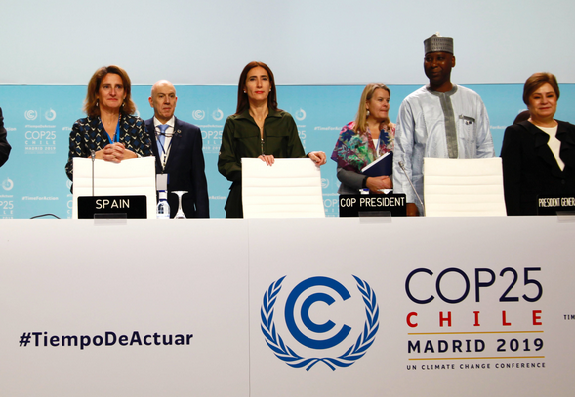
Climate change: UN secretary general Antonio Guterres summed it well. The global community lost an opportunity to show higher ambition on mitigation, adaptation and finance to tackle climate change, he said after the disappointing conclusion of United Nations climate talks in Madrid. The COP25 talks failed to meet its ambitious targets despite working two more days after Friday, its scheduled last day. The final agreements agreed on watered down targets cut emissions of greenhouse gases and postponed a decision on norms to regulate the international carbon markets till next year’s meeting in Glasgow, Scotland. In the next meeting, countries will present their updated national climate plans that will improve on the commitments made under the Paris Agreement of 2015.
The 12-day summit was expected to frame the guidelines for the Paris Climate pact of 2015, but fell short because of disagreements between the largest global economies that contribute most to global warming. While the participating governments agreed on the grave nature of the climate crisis, they failed to arrive at a plan to enhance the targets set by the Paris agreement.
READ: Climate change: India lost $37.8 billion in extreme weather events in 2018: Study
While most participants were disappointed by the outcome of the conference there are some areas where considerable progress was made. One among them is the commitment by the European Union to achieve carbon neutrality by 2050. In all, 73 negotiating countries promised to submit an enhanced climate action plan. The conference cannot be termed an absolute failure as 14 regions, 398 cities, 786 businesses and 16 investors have shown commitment to achieve neutrality in CO2 emissions by 2050.
There was wide recognition that there is a need to bridge the gap between the emission targets set by the Paris Agreement and the new evidence-based targets put forward by the scientific community. Paris pact had set a target to limit warming by 3 degrees, but new scientific studies say this could submerge some large coastal cities and destroy farming in many parts of the globe. Scientific studies show that carbon emissions have increased by 4% after the signing of the agreement. While a few countries came up with stiffer emission targets, some of the largest emitters such as the US, China, Brazil and Australia failed to do so, holding up a possible agreement.
READ: India on course to cut emissions by 35%; Javadekar asks rich nations to pay up
A study by the US-based think tank Climate Central has warned that around 300 million people will be affected by chronic floods, triggered by global warming. It says coastal land inhabited by 200 million people will be permanently submerged by 2100. India will be one of the most affected countries with 36 million people living in coastal areas will be affected by flooding.
Sajna Nair is a former banker. Her areas of interest are environment, art and culture.


